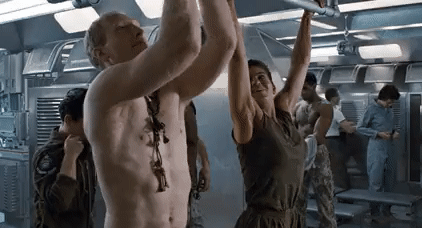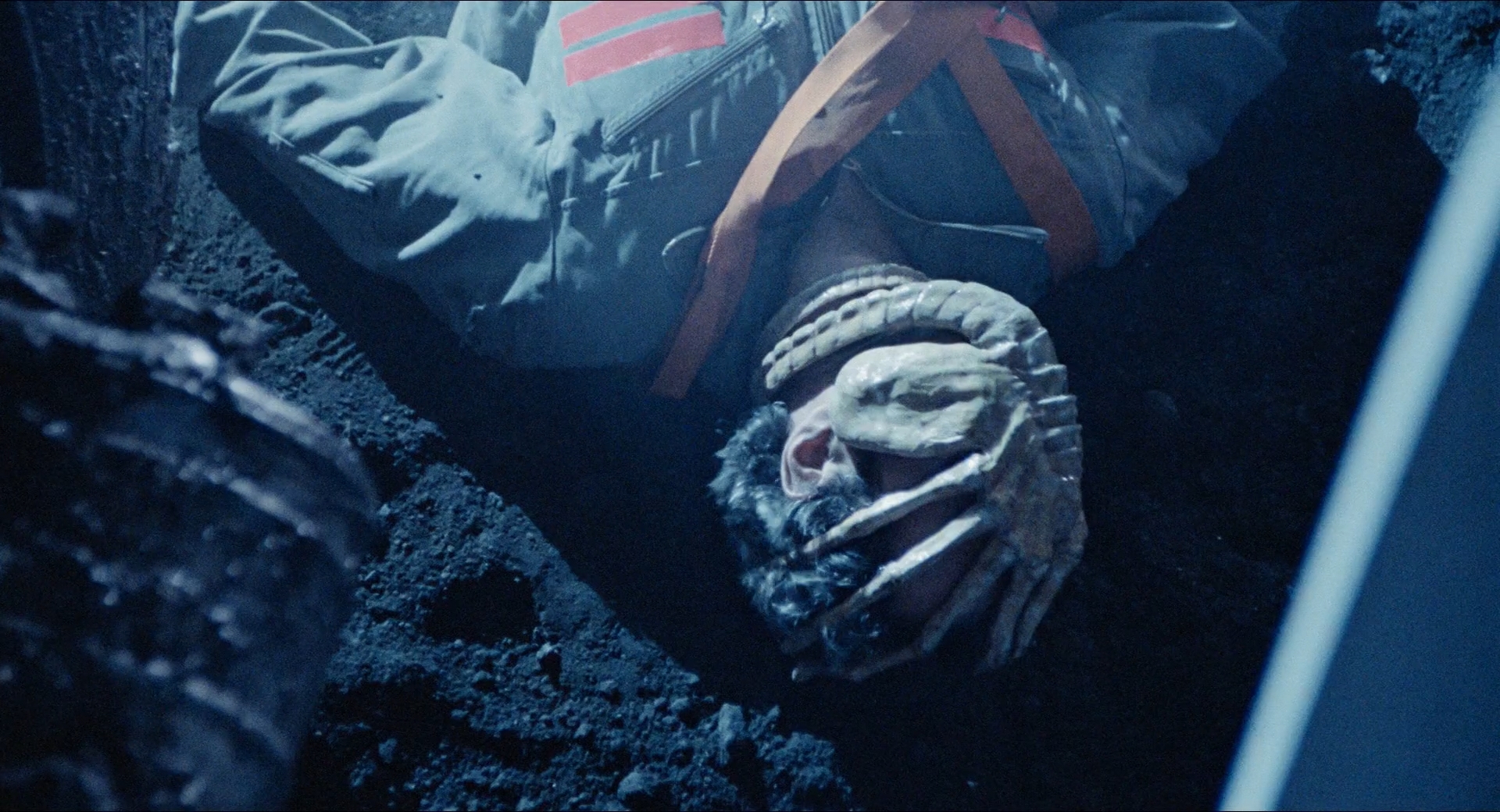April 29, 2025
Every question you need to ask to be a mindful user of AI was asked in the 1986 movie Aliens.
Are you on the loading dock or at the gym?
In recent months, I have become an excited adopter of AI tools for programming. With tools like Cursor, ChatGPT, and Codex, I feel like a faster and more capable version of the programmer I am without AI. In short, I feel like this:
This is the best-case scenario for AI use — the tools amplify your abilities. You’re still in control, just stronger. Able to do more. You can load equipment onto a transport vehicle or do battle with an enraged xenomorph queen!
However, just because a Power Loader helps when you’re standing on the loading dock of a spaceship does not mean it is a tool to use in all circumstances. Neither the Marines nor Ripley were born knowing how to use a Power Loader. They had to go through training and get certified, and part of that training is building unassisted physical strength and coordination. Imagine how Private Vasquez would react if you suggested she use a Power Loader to help with her pull-ups — or worse, have a robot do the pull-ups for her? Vasquez is a badass because she knows there are times when doing the work yourself is the entire point.
Thus, the key question for mindful AI use: What situation are you in? Are you standing on the deck of the Sulaco, where what matters most are the results — how quickly can you put missiles and other cargo where it needs to go? Or are you at the gym, where the important thing is doing the work yourself? Knowing what situation you are in is the most important consideration for mindful AI use.
Why are we doing this, anyway?
The second key question for mindful AI use: how meaningful of an activity are you using it for? In the Aliens universe, the spectrum runs from “deeply meaningful and important, like caring for a lost human child”:
…to “incredibly dehumanizing, like being forced to grow a xenomorph inside your body.”
Answering this question is important because it can help you avoid two kinds of mistakes with AI use:
- Trading treasure for time
- Robot pull-ups
Trading Treasure for Time
Ripley had a chance to escape the planet LV-426 on her own and have plenty of time to spare… but she chose to go back and rescue Newt. You make the mistake of trading treasure for time when you are abandoning a meaningful activity to AI tools for the sake of efficiency or productivity. For example: I write to explore and solidify my own thoughts. The writing process is how I take a jumble of confused and perhaps contradictory ideas that are sloshing in my head and organize them into something coherent. It is deeply meaningful to me. Luckily, I’m just writing for fun, and you can tell from my erratic publishing schedule that I don’t feel pressure to produce newsletters on a consistent basis. This saves me from the dilemma that probably faces many writers today: At what point does using AI tools to help you write faster mean you’ve offloaded the very process of thinking to machines?
Robot Pull-ups
I’m not much of a gym-rat, but for a few years I showed up at a gym by my house. Twice a week, week after week, for over half a decade. And then… I just stopped. It’s been eight years since I’ve set foot in a gym. The reason is simply that I find moving heavy things indoors annoying and boring — it’s not quite to the level of “host a xenomorph inside my body,” but my laziness is strong. Judging from what happens to New Year’s Resolutions each February, I’m not the only person who reacts this way. When the work is unpleasant, the temptation to use AI tools even in situations when you know you should do the work yourself will be strong. Beware robot pull-ups!
Why Mindful AI Use Matters
In the 18 years since the launch of the iPhone, mobile computing and constant internet access have changed society. From what I’m seeing inside the computer programming discipline, I think the AI revolution will be a bigger deal. It’s coming faster than people think and has the potential to be more disruptive. I worry we aren’t doing enough to help people think clearly about good ways to use new AI tools. Consider the mixed messages we deliver to the nearly 80 million students in the United States. I bet many hear simultaneously, “You are learning, so it is important to do the work yourselves” and “Your prospects in college and life depend on the grades you get on assignments.” Hearing these messages, do you think students know clearly if they are in the gym or on the loading dock? As a society, we are sending these mixed messages to kids who often find the work about as enjoyable as a face-hug from a xenomorph — in this environment, is it so surprising that kids would rather use AI to cheat than to learn?
By nature, I’m an optimist and I’m looking forward to what we will be building in the AI era. However, my optimism assumes that as a society and as individuals we are deliberate and mindful in the ways we use AI tools. If we stay clear about when the work matters — and have the discipline to do it — AI won’t replace our humanity. It’ll amplify it.



